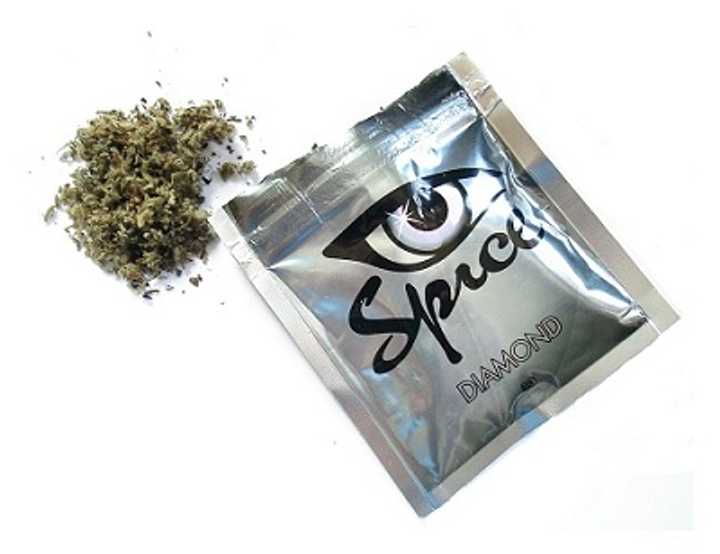New Jersey becomes only the fourth state to outlaw the manufacture, distribution, sale, and possession of hundreds of possible variants of the dangerous, manmade drug — commonly known as “K2,” Spice,” “Kush”and “Jersey Shore,” among others — whose side effects reportedly include seizures, hallucinations, panic attacks, and suicide. This comes after a ban earlier this year on bath salts.
On the market nearly eight years now, mock pot has become the third-most commonly abused drug by high school seniors, after marijuana and prescription drugs, according to the National Institute on Drug Abuse.
Sold under names such as “K2” or “K3,” “Down to Earth” and “Comatose Candy” — and selling for $30-$40 per bag — the mostly 500-milligram foil packets contain mixes of herbs and plant materials coated with chemicals that simulate the same high produced by pot’s psychoactive ingredient, THC (tetrahydrocannabinol).
The chemicals, in some cases four to five times more powerful than THC, were first developed for research – and labeled as not intended for human consumption — in the mid 90s.
Side effects have included violent seizures, dangerously elevated heart rates and heart attacks, according to the U.S. Drug Enforcement Administration and the National Institute on Drug Abuse.
It’s a “more potent substance than natural marijuana by its actions on the brain,” said Dr. Ashwin Reddy, a psychiatrist at the Boston University School of Medicine. “It can cause an increased risk of paranoia, hearing voices, disorganized behavior and panic symptoms.
“Depending on the person, psychotic symptoms can last a few days to a few months.”
Some synth pot looks like fuzzy, fluffy crumbled marijuana mixed with common herbs. It sometimes smells like black licorice.
The New Jersey Division of Consumer Affairs in February issued a temporary directive, which became permanent following a public hearing. Otherwise, it would have expired this week.
“These synthetic poisons, once offered as a so-called ‘legal high’ by shady retailers, are now permanently off the market in New Jersey – and the numbers indicate our ongoing ban has led to a decline in their reported use,” state Attorney General Jeffrey S. Chiesa said.
The DCA ban includes both broad and specific language that encompasses all possible variants of the drug, and any synthetic chemical that mimics the effects on the brain of THC.
Officially, the chemicals have been added to the list of Schedule I Controlled Dangerous Substances in New Jersey.
As Schedule I CDS, the drugs are now subject to the highest level of State control, along with cocaine and heroin. Manufacture, distribution, sale, or possession of the chemicals is now a third-degree crime. Violators may be subject to a fine of up to $25,000 and imprisonment for a three- to five-year term.
“New Jersey’s law enforcement agencies now have the tools they need to shut down the sellers of these toxic drugs, and keep them away from anyone misguided enough to use them,” said Acting DCA Director Eric T. Kanefsky.
Since the temporary ban was instituted, the State Police Office of Forensic Science reported a 79-percent decrease in the number of synthetic marijuana incidents tallied by police and other law enforcement agencies in the state.
The number of synthetic marijuana exposures reported to New Jersey’s poison control hotline is also significantly lower than last year, according to data from the New Jersey Poison Information and Education System.
This summer, state authorities made a series of synthetic marijuana busts on the Wildwood boardwalk. Investigators from the Cape May County Prosecutor’s Office seized nearly 1,600 packets of the phony weed and other toxic chemicals that they said had an estimated retail value of $160,000, as well as $121,000 in cash.
At the same time, CLIFFVIEW PILOT reported exclusively that police throughout New Jersey began issuing warnings about synthetic marijuana.
Click here to follow Daily Voice Monsey and receive free news updates.

